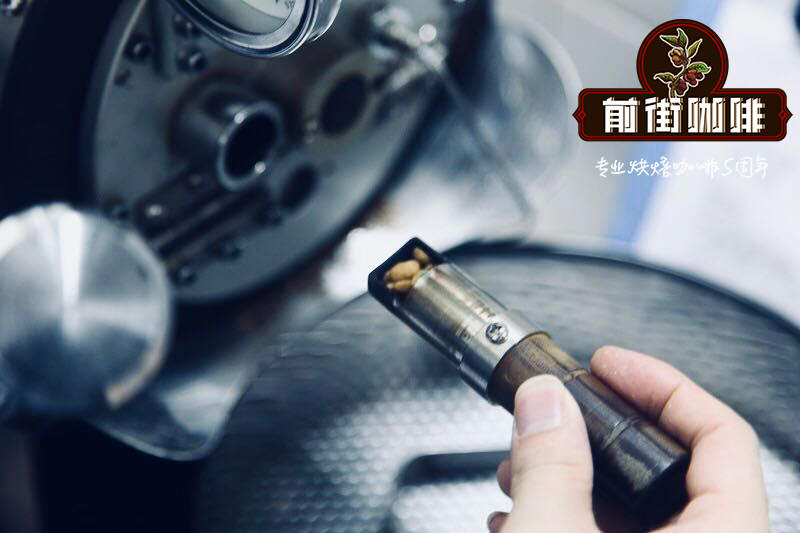Kenya Karogoto Karlotu Coffee Bean Story _ how to bake Kenyan coffee beans?

Professional coffee knowledge exchange more coffee bean information please follow the coffee workshop (Wechat official account cafe_style)
Tim Flavor Note: 'this is one of my favorite Kenyan coffee. The flavor of coffee from Korogoto is always particularly clean, with floral aromas and strong blackcurrant flavor, because most local farmers still grow SL28 varieties and have received a lot of solid agricultural training over the years. The climatic conditions also contribute to the intensity of the coffee. The cool night but hot weather during the day slows the growth of coffee beans and gives Korogoto coffee a unique personality.'
About the roasting of Kenyan coffee beans
Tim Wendelboe hopes to retain the original and natural flavor of coffee beans as much as possible so that they can taste the unique personality of each producing area and variety. As a result, Tim uses a high-quality bean roaster and roasts coffee very carefully to avoid overroasting the original flavor, while avoiding herbaceous, woody, and too sharp acidity caused by incomplete roasting.
Tim coffee beans are suitable for all cooking methods except Italian concentrate. The shallow roasting degree can show clear, bright and sweet coffee. If you use the Italian coffee machine, because the concentrated extraction may cause the acidity of the shallow roasted coffee to be over-magnified, so if you use the Italian coffee machine, we recommend buying a style with the title marked "Espresso".
Karogoto processing plant
Karogoto, located near the town of Karatina, has more than 1700 members and is the largest wet grinder of the Tekangu cooperative. All the members are small farmers, and some farmers are very famous in the Nyeri region because of their excellent farm capacity, such as the farm of one of the experienced farmers, Mr. Elmud, which produces an average of 30-40 kg of coffee cherries per coffee tree, which is a staggering figure compared to about 1-2 kg per tree in Ethiopia. Even though Mr. Elmud's farm does not have many coffee trees, he is highly productive and of high quality because he has been trained as an agronomist organized by a cooperative. Because of this, he was able to make a decent and comfortable life from the growing coffee business.
After the coffee cherries are delivered to the wet mill, the factory manager Mr. Ephraim is responsible for processing and drying the coffee. He is very enthusiastic about his work and is a member of Tekangu. He has done his best over the years to improve the quality of coffee as much as possible. We have been buying coffee from this cooperative because it is always one of the best coffee of the year in the Nyeri region. As it was difficult to work directly with thousands of small farmers, we decided to try a different approach. In 2010, we donated eight sets of metal drying beds and funds to Karogoto to help Karogoto improve the quality of coffee.
If coffee makers are asked to name several star processing plants in Kenyan coffee, Karogoto is one that almost no one will miss. As a matter of fact, not only Karotu, but also the other two processing plants under the co-operative Tekangu FCS of Karuotu, the Tegu processing Plant (Tegu Factory) and the Ngunuru processing Plant (Ngunuru Factory), are also the targets of buyers of boutique coffee bean hunters from all over the world. At the beginning of the season, they will first go to inspect the harvest and processing conditions, and as soon as the output / sample is available, they have to fly to the producing area to test and pick the batch. Our pebble also sent staff to the producing area this year, and the on-site cup test picked back our favorite batches.
Karotu is not only popular with the third wave industry in the United States, but also loved by Nordic bakers. In 2010, which marks its third anniversary, Tim Wendelboe/Nordic Approach raised money to build a new sunscreen for Tekangu FCS in the store, raising $3500 in just one day (http://nordiccoffeeculture.com/tim-wendelboe-oslo/)). When I visited the Karotu processing plant this year, I could see that the scaffolding with the Tim Wendelboe sign was still used (see attached photo).
Karotu's flavor and quality are very consistent every year, showing the most familiar and missed typical Kenyan coffee flavor orientation, solid and elegant, with a high level of complexity. Citrus acid, blackcurrant, grape juice, black plum, Hawthorn, smoked and other rich flavors will make every sip wonderful.
Karotu is still very popular this year, Sweet Maria's, Stumptown, Coffee Collective, Verve Coffee Roaster … Well-known bakers in America and northern Europe are now on sale at the same time. Friends who like Kenyan food, don't miss it.
END
Important Notice :
前街咖啡 FrontStreet Coffee has moved to new addredd:
FrontStreet Coffee Address: 315,Donghua East Road,GuangZhou
Tel:020 38364473
- Prev

Introduction of Kenya AB Coffee beans in Kirinia and Kawangi. Kenya AB must be worse than Kenya AA?
Professional coffee knowledge exchange more coffee bean information Please follow Coffee Workshop (official Wechat account cafe_style) Kirinyaga production area is located on the hillside of Mount Kenya, adjacent to Nyeri, famous for its strong taste, rich layers and solid taste of coffee, and Nyeri is recognized as the two best producing areas in Kenya. Most of the producers in this area are small coffee farmers.
- Next

Kenya Light God Balawi Yanga AA Coffee producing area Information _ how to make Kenyan Coffee beans
Professional coffee knowledge exchange more coffee bean information please follow Coffee Workshop (Wechat official account cafe_style) Kenya Coffee-Bharavi Yanga AA kenya kirinyaga baragwi nyanja name: KENYA KIRINYAGA BARAGWI NYANJA AA Kenya Coffee production area Kirinia Nepal Pleiades plus AA Micro batch level: AA production area: BARAGW
Related
- Detailed explanation of Jadeite planting Land in Panamanian Jadeite Manor introduction to the grading system of Jadeite competitive bidding, Red bid, Green bid and Rose Summer
- Story of Coffee planting in Brenka region of Costa Rica Stonehenge Manor anaerobic heavy honey treatment of flavor mouth
- What's on the barrel of Blue Mountain Coffee beans?
- Can American coffee also pull flowers? How to use hot American style to pull out a good-looking pattern?
- Can you make a cold extract with coffee beans? What is the right proportion for cold-extracted coffee formula?
- Indonesian PWN Gold Mandrine Coffee Origin Features Flavor How to Chong? Mandolin coffee is American.
- A brief introduction to the flavor characteristics of Brazilian yellow bourbon coffee beans
- What is the effect of different water quality on the flavor of cold-extracted coffee? What kind of water is best for brewing coffee?
- Why do you think of Rose Summer whenever you mention Panamanian coffee?
- Introduction to the characteristics of authentic blue mountain coffee bean producing areas? What is the CIB Coffee Authority in Jamaica?

